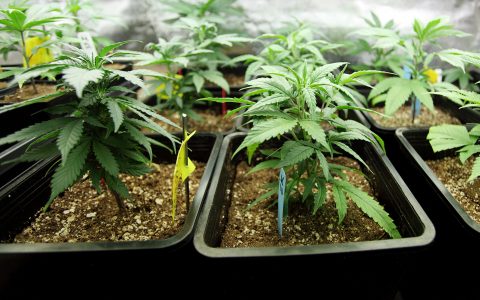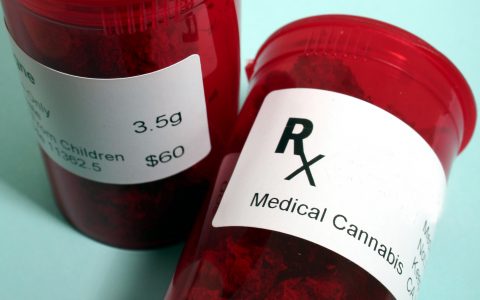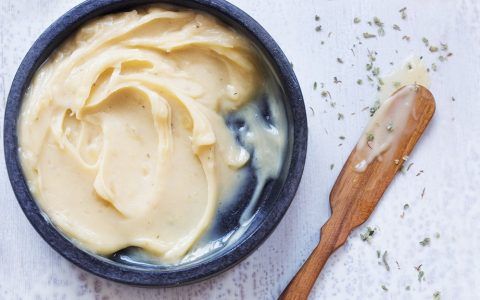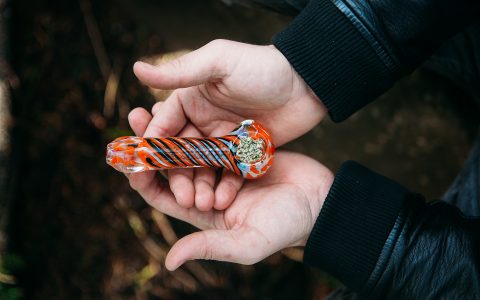I'm just starting to see more brands for sale, more strain variety, and an improvement in quality as well as some deals popping up. Concentrates are still way too damn expensive and the article below addresses the status of growers and dispensaries but where the hell are the rest of the processors?? We have fourteen of them licensed but I'm not seeing 14 different brands (but have seen a couple of new brands pop up recently).
Now, this article...as does just about every other one about the MD MMJ program, addresses diversity extensively. Not for this thread, or even this board, but personally I don't find anything intrinsically beneficial to "diversity" Equal opportunity...I'm ALL about it. But we seem to have accepted that there is some innate goodness in diversity without question. Well, I question it. And what does diversity mean? Do we have to make allowances and ensure we have people both shorter and taller than the morm? How about thin and fat. Certainly we need every type of hair color. How about nationalities? I'm sure Hmong people would love to have some sort of set aside or preferential treatment to ensure that they are represented in every possible group.
Ok, leaving this topic now. LOL
6 Months On, Maryland Patients Struggle With Limited Selection and Supply
Maryland’s cannabis industry surprised Amy Mellen when she moved here from Oregon in 2016. She had migrated from a state where 87 percent of residents are white to a state where roughly three in 10 residents are black.
But when Maryland state regulators announced their preliminary picks that year for medical marijuana licenses—15 apiece for growers and processors—not a single grower and only one processing company was black-owned. The lack of consideration for diversity as a factor shocked her, she says.
Maryland is still struggling to manufacture concentrates, and the state has banned edibles. What’s more: the supply chain is still almost entirely white-owned.
“You have so many different nationalities here, and so many different people in this melting pot,” says Mellen, recently hired as a patient counselor at a dispensary in Upper Marlboro, about 20 miles southeast of Washington D.C. “Why would they not consider it?”
Maryland’s first medical marijuana dispensaries opened in December 2017, with just 10 of 102 planned retailers licensed. As of late May, about a half-year in, nearly four dozen were up and running, Maryland Medical Cannabis Commission (MMCC) chairman Brian Lopez told
Leafly.
Flower prices and availability—once expensive and lacking, respectively, when sales kicked off—have gradually improved as growers and processors have begun to fill store shelves to meet patient demand. But Maryland’s industry is still struggling to provide adequate and affordable options for concentrates, and has barred dispensaries from selling edibles. And what’s more: the supply chain is still almost entirely white-owned.
‘Actively Seek Diversity’
The
2014 law that created the state’s cannabis legal framework directed the MMCC to “actively seek to achieve racial, ethnic, and geographic diversity” among licensees. But regulators opted not to prioritize race in the selection process. They
cited a letter from the state attorney general’s office that advised doing so could be unconstitutional without an existing history of racial disparity in the industry.
The state’s Legislative Black Caucus has since pushed to add more licenses for minority entrepreneurs, and require the commission to factor race into the application process. Gov. Larry Hogan, a Republican, ordered a
disparity study on the matter. That study concluded the state could do more to “remediate discrimination” against minorities and women “in the types of industries relevant to the medical cannabis business.”
This year, caucus chairwoman Del. Cheryl Glenn (D-Baltimore) introduced a bill to mandate that the commission consider race in cannabis license applications. Glenn’s bill would also add seven growing and 13 processing licenses, better address “needs” and barriers for minorities and female entrepreneurs, and create a “compassionate use fund” to assist low-income and veteran patients obtain their medicine.
The General Assembly passed
the measure, and Hogan signed it into law on May 15.
Who Got the Licenses
In a recent interview with Leafly, Glenn confirmed that some of the additional licenses are already taken. Seven Points Agro-Therapeutics, the state’s sole black-owned processor, has been promised a grower’s license. Several existing growers have also been guaranteed processor licenses. Two companies that sued the commission over its selection process in 2016 were promised licenses as well.
But more than a dozen are still up for grabs, Glenn notes. She remains bullish that her legislation will help solve the diversity problem: “It’s absolutely going to be helpful.”
Still, the new a diversity mandate doesn’t necessarily eliminate economic barriers to minority involvement. One big issue, Lopez acknowledges, is financing.
“It’s very expensive,” the MMCC chairman says, “and you have to have a high qualification to get into the business.”
 $5 to $10 Million to Start
$5 to $10 Million to Start
Ted Rubholz is the president of Temescal Wellness, a Baltimore-based grower, processor and dispensary. He says a dispensary alone can require at least $250,000 in startup capital.
The price tag increases from there, Rubholz adds. “As you go up the supply chain—especially when you talk about cultivation—if you’re going to achieve a capacity out of the gate that’s where you can actually be a consistent supplier, you’re probably looking at at least $5 million. Most folks budget at least $10 million.”
Hidden Barriers
Statistically speaking, white people are financially better off than people of color in Maryland. The median incomes for black and Hispanic households in Maryland from 2011 to 2015 were $59,021 and $62,463, respectively, according to U.S. Census data. For white households, it was $83,055.
In Maryland, nearly 14 percent of blacks and 12.4 percent of Hispanics lived at or below the poverty line in 2016, compared to 7.6 percent of whites, per an analysis of Census data by the
Center for American Progress, a liberal think tank.
One way of “ensuring that a wide diversity of people can enter this marketplace as entrepreneurs,” Rubholz suggests, is for states to “eliminate any requirements for vertical integration”—that is, licensing the same company to grow, process and dispense cannabis, as his company does—“to maximize the accessibility for all types of folks” to open businesses.
More Products, Lower Prices Expected
Beyond improving diversity, patients and advocates hope the addition of grower and processor licenses will beef up Maryland’s cannabis supply chain, lowering prices and meeting patient demand.
Flower prices have improved since the state’s first dispensaries opened in December 2017, but concentrates and topicals are still in short supply and can be prohibitively expensive, patient advocates say.
'When you only have a certain number of growers, you’re only gonna get certain strains that come along.'
Amy Mellen, medical cannabis patient counselor
“Dispensaries will get 20 grams of oil in a shipment, and they won’t get any more for weeks at a time,” says Max Davidson, executive director of the Maryland Patient Rights Association and an assistant general manager for a dispensary in Baltimore County.
A gram of concentrate generally costs about $100, he says, and a cartridge of oil generally goes for $70 to $90, depending on geography. The comparative black market rate ranges from $25 to $50, he says.
And inventory doesn’t last long. “A strain will appear and then disappear, and then it’s gone,” Davidson says. “You won’t see it again for sometimes weeks or months.”
Few Growers Out There
Mellen has heard similar complaints from patients. The state’s limited pool of growers also limits the selection of strains.
“When you only have a certain number of growers and you’re going through harvest cycles, you’re only gonna get certain strains that come along,” she says.
When the industry came online in December 2017, Lopez notes, only one or two growers had harvests ready to deliver, and just two of the state’s 10 licensed dispensaries actually opened.
Fortunately, that situation has improved. “All of our growers are now producing,” he says. Forty-six dispensaries have opened as of mid-May. Lopez expects 90 percent of the state’s 102 approved dispensaries will be licensed by the end of the year.
He also expects prices to fall as more competition and ramped-up production work their way into the market.
As for product availability, Lopez suggests patients can control what processors are putting out by giving feedback to their dispensaries, which will then pass word on to suppliers. It’s basic economics, he says. “If the demand is there and people are requesting it, it’s going to come out.”
Patient Worries: Guns, Drug Tests
Patients have other concerns as well. Both Davidson and Joie Leigh, director of public outreach for the Maryland chapter of the National Organization for the Reform of Marijuana Laws (NORML), say patients fear Maryland state officials will
prohibit them from buying or owning guns because they’re registered with the commission. Some worry their employers could fire them for testing positive for THC during drug tests.
Mellen also says patients have complained that the state’s Metrc system, which tracks cannabis supply, has double-counted their flower into their monthly limits by also calculating the concentration of THC in their purchases and applying it toward their maximum for concentrates.
MCCC chairman Lopez says he hasn’t “heard a lot of issues” about Metrc, but says it “does have a formula that it comes up with in order to identify what the maximum is.” He recommends patients call their provider or the MMCC to learn more.

RELATED STORY
Can Medical Marijuana Patients Legally Own Guns?
Wait, No Edibles?
Edibles are a big issue. MMCC regulations don’t allow retailers to sell them. Mellen says the state “has really kind of shot themselves in the foot” in this way, pointing to the loss of potential tax revenue.
State regulators banned edibles due to concerns about accidental ingestion by children and worries about the FDA.
Asked why edibles aren’t permitted, Lopez cites concerns about accidental ingestion by children and a desire to keep the U.S. Food and Drug Administration (FDA) from intervening to regulate food products, such as baked goods.
Although Lopez cites the FDA, in fact no medical or adult-use state that allows edibles has run into trouble with the federal agency. As
John Mansfield, a leading cannabis lawyer with the Portland, Oregon, firm Harris Bricken,
has noted, “the FDA’s role in food is essentially hands-off. Though the FDA has promulgated hundreds of pages of food regulations, it mostly relies on food makers to self-enforce these regulations.”
The FDA has sent warning letters to CBD makers who make claims about the substance healing cancer, multiple sclerosis, diabetes, and a host of other conditions. But it has not interfered with cannabis-infused edibles, including baked goods, in states that allow the sale of such products.
Patients Want More Choices
The MMCC chairman notes that patients have expressed interest in orally ingestible elixirs and tinctures. The commission is planning to accept public feedback and “work with the stakeholders and the industry on how to resolve it,” he says.
Glenn supports the change, and says she will consider proposing legislation in 2019 to make edibles available at dispensaries, assuming she gets re-elected to her seat in November.
“You can’t do it all at the same time,” she says. “You have to be very diligent in prioritizing those factors and those issues that are most important for the industry.”
Mellen was impressed with the initial rollout of medical cannabis in Maryland, particularly the speed at which patients could obtain medical cards and the fact that product labels contained specific terpene profiles. Still, she argues the state owes patients more attention to their concerns.
“This program was created for the people of Maryland, it was voted for by the people of Maryland,” she says. “This is a program the state is to provide for the people of Maryland.”









